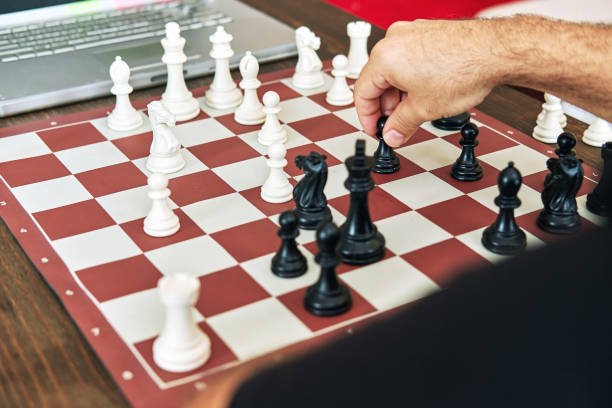If you live in Gothenburg and want clear, calm chess training for your child—or for yourself—this guide is for you. In a few minutes, you will see the best ways to learn chess today, what to avoid, and how to pick a coach who explains ideas in simple words. You will also see why online chess classes, when built with care and a real plan, can help you learn faster than most local options.
At Debsie, we teach chess step by step. We use easy language. We build habits that last: check for danger, make a plan, think before you move, and stay calm when the clock runs low. Our FIDE-certified coaches teach live, give personal feedback, and follow a clear path from first moves to tournament level.
We also run friendly online events and bi-weekly tournaments so students in Gothenburg can practice often and grow with confidence. It feels personal—like one-on-one help—even when you join from home.
Online Chess Training
Online chess training is simple when it is done with care. You sit at home with a laptop or tablet. You join a live class with a real coach. You see the coach’s board. You move your pieces. You ask questions. The coach replies right away.
There is no cold walk to a tram stop, no car ride, no parking hunt. You save your energy for thinking, not for travel. This matters on school nights in Gothenburg when the day is already full.
The best online training follows a clear path. It does not jump from one random topic to another. It starts with board safety so blunders drop fast. It builds pattern vision so you can spot pins, forks, and mates in under three seconds.
It teaches opening ideas as easy plans, not long lines you will forget under pressure. It shapes endgame skill so you can turn a small lead into a clean win.
And it ties everything together with a simple thinking routine that you can use in any position: check for danger, list two or three good moves, choose the plan, then move. When each class links to the next, the mind relaxes. You know where you are and where you are going.
Modern tools make the learning smooth. The coach draws arrows to show ideas. The class pauses at key moments so you can think before anyone moves a piece. You play short training games with a time control that fits your level. You solve puzzles matched to you, not to a room full of mixed players.
You can watch the lesson recording if you miss a day or want to review before a tournament. You can send a game to your coach and get notes the same day. These short feedback loops are the secret. Try, get guidance, try again soon. Skill grows step by step, without drama.
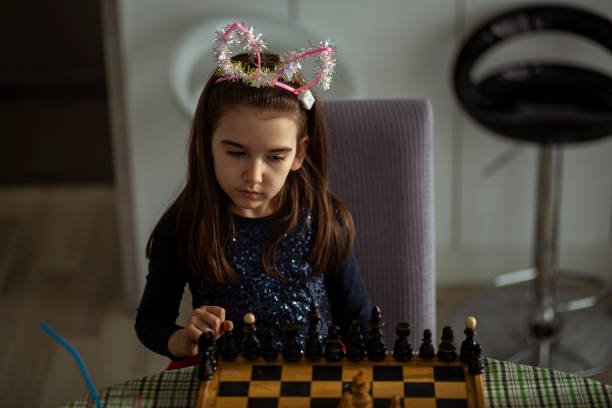
Landscape of Chess Training in Gothenburg and Why Online Chess Training is the Right Choice
Gothenburg has a friendly learning culture. Schools support clubs. Libraries hold events. Local groups meet for games on weekends. You will see children play in community rooms and parents chat while clocks tick. This is good for the city. It keeps chess visible. It gives families a place to gather and feel the spirit of the board.
But the daily training needs are different from the weekend vibe. On a Tuesday evening, you must get homework done, eat dinner, and keep bedtime on track. Add a trip across town, and time slips away.
By the time you reach a club, your child may be tired and less ready to think. Mixed-level groups are common, so a beginner may feel lost and a stronger player may feel bored. The class can be charming, but the learning pace is uneven.
Another issue is the lack of a visible curriculum. Many local groups have wonderful hearts but no written roadmap. You might see a famous game one week and a set of random puzzles the next.
Both can be fun, yet you walk out wondering, “What should we practice before next time?” When there is no clear path, progress becomes slow and fragile. The child forgets the key idea by Friday. The next week begins from zero again.
Online training fixes these gaps. It gives you level-based classes, a written path, and a tiny homework plan that fits your week. It blends short, live sessions with quick drills at home.
It gives fast feedback on your child’s own games, not just on a grandmaster’s masterpiece. It makes it easy to keep going even when life gets busy. You can still enjoy local over-the-board events for the joy of the hall. But your daily build—your real growth—happens at home, where the rhythm is calm.
How Debsie is the Best Choice When It Comes to Chess Training in Gothenburg
Debsie leads because we mix structure with heart. We teach in very simple words. We keep steps small. We give kind, direct feedback. We never leave you guessing about what comes next.
Our roadmap is the backbone. From day one, your child enters a group that truly fits. We start by lowering blunders with a short safety check before each move. We grow pattern vision so tactics jump out fast. We teach opening plans you can remember when the clock is low.
We shape endgames so a small lead turns into a clean win. We coach time use so panic fades. We tie it all together with a thinking routine your child can repeat in any position. This routine is short, calm, and powerful. Over time, it becomes a habit the child can trust.
Our classes are live and interactive. The coach asks brief questions, invites students to move pieces, and watches closely for confusion. If a child feels shy, we create a gentle way to answer.
If a teen is eager, we give a slightly harder line to analyze. We keep groups small so each student is seen and heard. The room feels safe. In a safe room, students try. When they try, they learn.
Progress is visible. After each class, you receive a note in plain language. It says what we learned, what your child did well, and the tiny practice plan for the week.
A typical plan might be a five-minute tactic drill, a short endgame exercise, and one thirty-minute practice game to submit. We review the game and send clear tips. These quick loops—learn, practice, play, review—build real skill and steady confidence.
We host bi-weekly online tournaments. Students feel the clock, test their plans, and learn good sports manners. After each event, we review key moments. We praise smart choices. We fix weak habits. We help students cheer for each other and handle hard moments with courage.

Offline Chess Training
In-person chess has a special feel. You sit at a real table. You shake hands. You hear the clock click and watch pieces glide across wood. Many families in Gothenburg enjoy this classic moment.
It can be a nice way to spend a Saturday afternoon or a quiet evening. If the room is calm and the group is small, a child may feel proud just to be there. Meeting friendly faces and seeing boards lined up in rows creates a sense of tradition and community that is hard to replace.
The daily routine, however, is not always simple. After school, everyone is tired. Coats, boots, and backpacks slow you down in winter. Trams and buses are crowded. Driving takes time. Parking can be tricky.
A late start makes the child feel rushed before the lesson even begins. If the group is mixed, the teaching pace may jump up and down. A new student hears terms they do not understand and feels lost.
A stronger student sits through long explanations of basics and feels bored. The hour moves quickly. You pack up and go home with questions still in the mind.
Most offline rooms rely on simple tools. A demonstration board is useful, but it can be slow to rewind five moves or jump to a new pattern. Saving the exact position where a child got stuck is hard. Notes may end up scattered across a notebook, easy to forget by the next day.
The coach might explain a lovely idea, yet there is no recording to rewatch at home. Without a clear practice plan and a way to review, the good feeling from class fades by midweek.
Travel time is the quiet cost that adds up. A one-hour class easily becomes a two-hour round trip. On a school night, that pushes dinner late and cuts sleep short. A tired brain makes quick, careless moves. Over weeks, the effect is larger than most people realize.
Drawbacks of Offline Chess Training
The first drawback is time. A short lesson turns into a full evening when you add coats, commute, and waiting. On cold or wet nights in Gothenburg, it is even harder. The child arrives drained, which lowers focus. When focus drops, careless moves rise. Over a term, these lost minutes become lost progress.
The second drawback is uneven levels. Mixed groups are common. Beginners need slow, clear steps. Advanced students need depth and speed. One coach, one hour, many levels—someone will be underserved.
The lesson becomes a compromise. A new player gets overwhelmed or a strong player gets restless. Neither gets the perfect stretch that builds skill fast.
The third drawback is the missing roadmap. Many local sessions are built around a nice theme of the day. You might watch a grandmaster game or solve a few charming puzzles.
It feels good in the moment, but there is no written plan that links last week to this week and next week. Parents go home unsure what to practice. Kids forget the key point by Friday. Without a path, progress is fragile.
The fourth drawback is slow feedback. A child may play ten online games at home and make the same mistake in half of them. Without quick review, the habit hardens.
By the time the next class starts, the pattern is set and harder to fix. Learning is most powerful when the teacher can see a game right after it happens and send a clear note: one idea to keep, one idea to change.
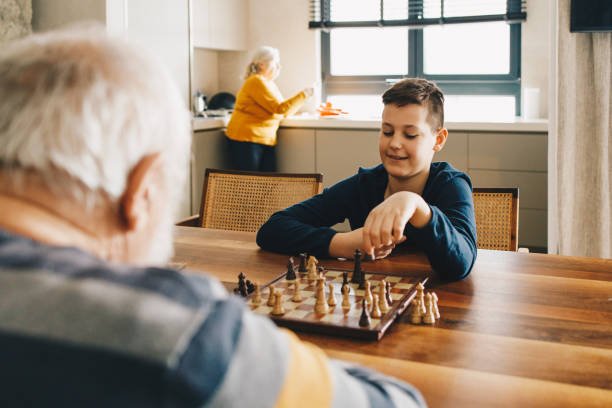
Best Chess Academies in Gothenburg
Gothenburg has real chess spirit. You can feel it in schools, libraries, and weekend halls where boards line the tables and clocks tick in a steady hum. Families meet, children laugh between rounds, and parents chat near the snack table. It is warm and human.
If your goal is steady growth with low stress, though, you need more than a nice room. You need a clean plan, a caring coach, and quick feedback every single week. That is exactly what you get with Debsie.
We place Debsie first in Gothenburg for one reason: results that come from simple teaching, a tight routine, and kind support inside your home. After Debsie, we will mention a few respected local clubs so you can blend the best of both worlds—calm, structured learning online and the joy of over-the-board play on weekends.
1. Debsie
Debsie sits at number one because we make learning chess feel clear, close, and calm for Gothenburg families. You join live from home. You meet a patient, FIDE-certified coach who speaks in very simple words. You learn one small idea at a time, and you practice it right away.
We use a written path from your first moves to strong tournament play. We track real progress—fewer early blunders, better time use, sharper endgames—and we share short notes after each class so you always know the next step.
The plan begins with safety. Your child learns a tiny check routine before every move so pieces stop hanging. Then we build pattern eyes so forks, pins, and mates pop out in under three seconds. We teach opening ideas as easy plans you can trust when the clock is low.
We shape endgames so a small lead turns into a clean win and a tough position turns into a smart save. We coach time use so nerves settle in sharp moments. We wrap all this in a thinking routine that fits any position: scan for danger, list two or three candidate moves, pick a plan, then move. Simple, repeatable, strong.
Our classes are fully live and interactive. Students move pieces on a shared board, answer short questions, and test ideas in quick drills. If a child is shy, we give a safe way to respond. If a teen is eager, we stretch them just a little.
Class sizes stay small so every student is seen and heard. We notice confusion early and fix it on the spot with a clearer example. No one sits lost. No one is rushed. The room feels warm and focused.
Progress is visible every week. After class, you receive a short message in plain language: what we learned, where your child did well, and the tiny home plan. A typical plan might be a five-minute tactic set on Tuesday, a short king-and-pawn exercise on Thursday, and one thirty-minute practice game over the weekend.
2. Schacksällskapet Manhem
If you want the classic club experience in Gothenburg, Manhem is the big name. It is the city’s largest chess club, founded in 1906, with active teams and a long tradition of league play.
The club shares the Schackcentrum venue with the district federation and posts frequent updates about matches, youth activities, and open-house weeks where newcomers can drop in and try chess with volunteers and trainers. Families who enjoy a lively hall with many boards and a deep local history often start here for over-the-board play.
3. SK Kamraterna
Kamraterna is a historic Gothenburg club with proud team results and a steady calendar. They recently marked a 105-year jubilee with a junior invitational and run ELO-rated club events like rapid and blitz championships.
Their home venue “Pärlan” sits by Redbergsplatsen, making it easy to reach by public transport for many families on the east side of the city.
How Debsie compares: a full event calendar gives you places to compete, but it does not replace a week-by-week teaching plan tuned to your child. Debsie handles the daily build—clear lessons, tiny homework, and fast reviews—so your child can enjoy Kamraterna’s events with real confidence.
4. Majornas Schacksällskap
Majornas SS is a friendly community club with a long history. They host club evenings, youth sessions at their local venue and nearby schools, and occasional themed talks about world champions and famous games.
Their autumn schedule opens mid-week, and home matches often use federation rooms on Vegagatan. If you live near Stigbergstorget or in the western districts, this is a cozy option for live play and neighbors who love the game.
How Debsie compares: Majorna’s programs are welcoming, but the teaching pace shifts with the room. Debsie keeps the learning steady and personal, then encourages you to take those skills to a Majorna club night when you want the buzz of the hall.
5. Götaverken–Lundby SK
On Hisingen, the merged Götaverken–Lundby club runs local league teams, posts regular match reports, and keeps a calendar for district events.
Their site shows active play against other Gothenburg clubs, and their Lichess team page explains training times and the Lundby meeting place when over-the-board sessions are running. If you are on the island and want a nearby room, this is worth a look.
How Debsie compares: neighborhood access is great, but growth still slows when groups mix and feedback waits a week. Debsie closes that gap with short, focused homework, quick coach notes, and a clear path you can follow from home without a commute.
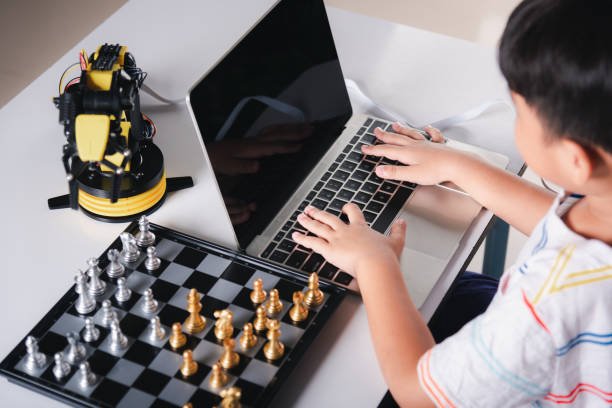
6. Göteborgs Schacksällskap and the District Federation
Göteborgs Schacksällskap keeps a modest web presence and shows club news and match results from recent seasons. For a wider view, the Göteborgs Schackförbund lists clubs, contacts, and venues across the city, from Kålltorp to central addresses on Vegagatan.
The federation also shares district news and school-chess updates, which are helpful if you want dates for team leagues or youth activities.
How Debsie compares: a directory helps you find doors to walk through; Debsie gives you the weekly plan that turns effort into real skill. Use the federation site to pick a weekend event. Use Debsie to prepare with the exact drills and game reviews your child needs before that event.
Why Online Chess Training is the Future
The way children learn is changing, and chess is leading that change. Families in Gothenburg want results without stress, and students want learning that feels close, quick, and kind. Online chess training fits this need perfectly. It keeps travel out of your evening.
It turns your living room into a quiet classroom. It gives your child a steady path with fast feedback so small wins add up each week. When learning feels simple and near, students keep going. When they keep going, they grow.
The first reason the future is online is coach fit. In one city, choices are limited by distance and time. Online, you can study with a patient, certified coach who explains ideas in very simple words and knows how to help when a child gets stuck.
You do not need the nearest coach. You need the right coach. That single change—fit—can turn confusion into progress in a few weeks.
The second reason is a roadmap you can see. A strong online program shows you the plan from day one. You know what skill is being built this week. You know the small task to try at home. You know what happens next class. You can rewatch the lesson if you miss a day.
You can send your own game and receive notes fast. This is not just convenient; it is how the brain learns best. Try, get feedback, try again soon. Short loops beat long gaps. When the plan is visible, stress falls and effort rises. Children feel safe to try. Parents feel safe to support.
The fourth reason is healthy time use. Online sessions remove the commute. A one-hour class takes one hour, not two. This protects dinner and bedtime. A rested mind thinks better, makes calmer choices, and enjoys learning more.
In class, we keep segments short and interactive. Between classes, we assign tiny tasks that fit real life. A five-minute drill done well can beat a long, wandering session done tired.
How Debsie Leads the Online Chess Training Landscape
Debsie leads because we keep everything simple, human, and structured. We built our program for families who want real progress without weekly stress. We speak in plain words. We move in small steps. We match levels with care.
We make practice short and clear. We give feedback fast. We track progress in ways that make sense to parents and to kids. None of this is magic. It is careful teaching, done with heart, every week.
Our roadmap is the spine. From the first session, your child enters a level that fits. We begin with board safety so blunders drop. We build pattern eyes so tactics appear fast. We teach opening plans you can remember under pressure.
We shape endgames so wins are closed and tough positions are saved. We coach time use so panic fades. We tie it all together with a thinking routine the student can repeat in any position.
The routine is short: check for danger, list two or three candidate moves, choose a simple plan, then move. We rehearse it until it becomes second nature. Clean thinking brings clean results.
They invite students to speak, to move the pieces, and to explain their thought process in easy words. Praise is real. Feedback is kind and direct. The room feels safe. In a safe room, students try. When they try, they improve.
Our classes are built for attention. We use a steady rhythm: explain a small idea, try it together, ask a question, hear the answers, play a short drill, and repeat. We avoid long talks. The shared board lets us draw arrows, highlight danger squares, and freeze sharp moments so everyone can think.
Our progress notes are short and plain. After class, parents receive a message that says what we learned, what went well, and the tiny plan for home. We keep tasks small on purpose. You might see a five-minute tactic set, a short king-and-pawn exercise, and one thirty-minute practice game.
Our community rhythm adds energy without noise. Every two weeks, we run online tournaments that are friendly and firm. Students feel the clock, test their plans, and learn tournament manners. Afterward, we review a few key games as a group.
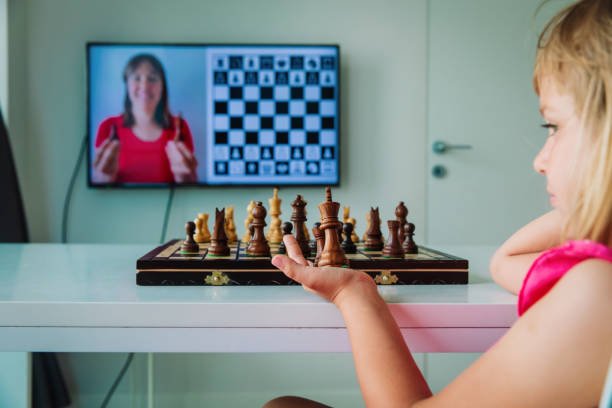
Conclusion
If you live in Gothenburg and want steady chess growth without stress, choose a path that is clear, close, and kind. Choose a coach who speaks in simple words, shows one small idea at a time, and gives gentle, direct feedback. Choose a routine that fits your evenings, not the other way around. That is the Debsie way.
You have seen why online training suits busy families here. It keeps the commute out of your night. It protects dinner and bedtime. It turns your living room into a quiet classroom with a warm coach who calls your child by name and guides them step by step.
You have seen how a written roadmap, short homework, and fast game reviews turn small lessons into real skill. You have seen how bi-weekly tournaments add brave play without the chaos of a long trip.
Most of all, you have seen that calm habits—scan for danger, choose a plan, breathe, and then move—help far beyond the board. They help in school, sports, and daily life.
Gothenburg’s clubs are wonderful for weekend play and community. Keep that joy. Let your child feel the wood, the clock, and the handshake. But let the daily build happen online, where the plan is tight and the feedback is quick. Blend the two and you get the best mix: public play for memories, home training for progress.
Comparisons With Other Chess Schools:
